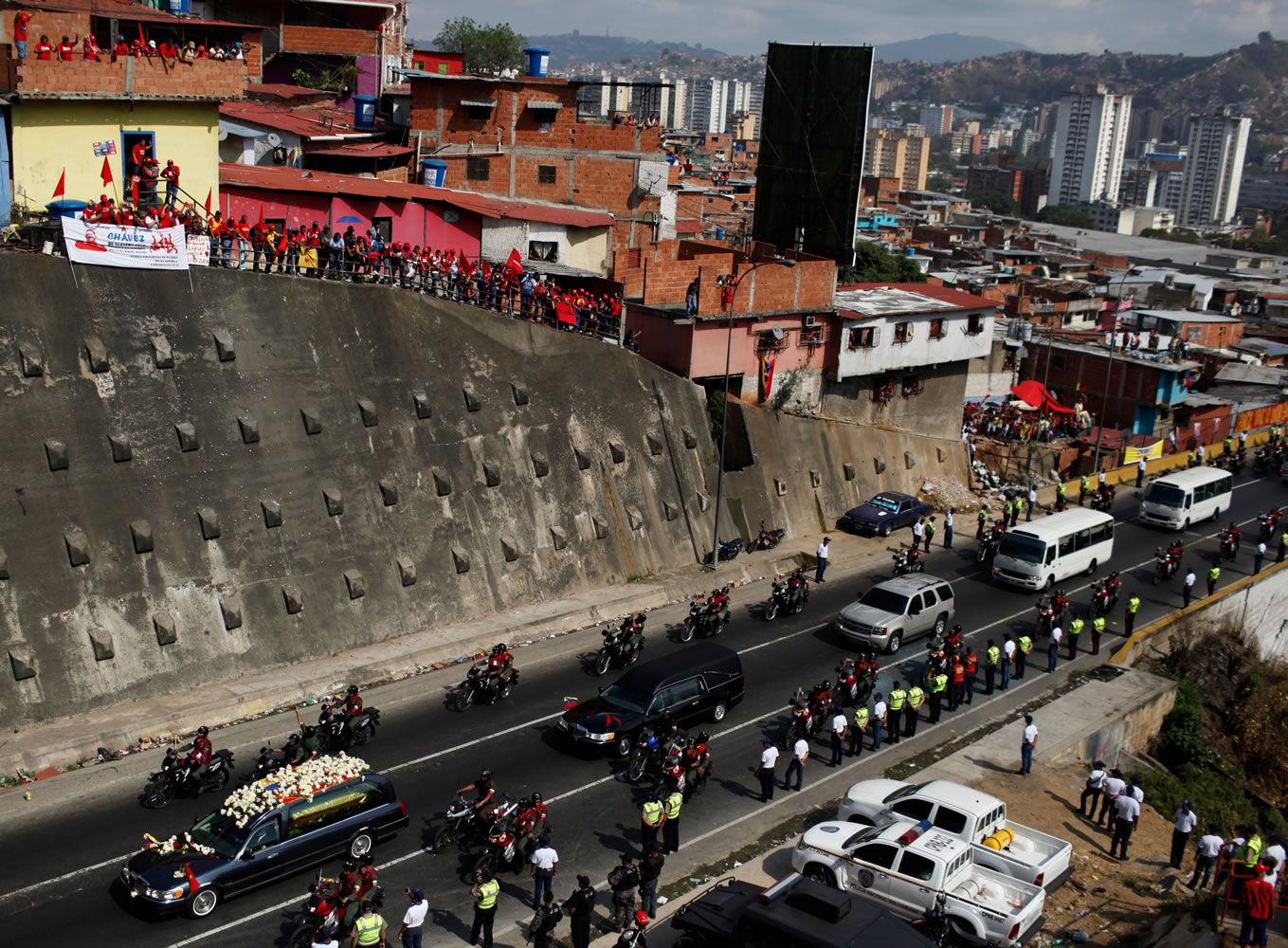CARACAS, Venezuela — The road from the military academy where Hugo Chavez’s body has been lying in state to the hilltop museum where he’ll be displayed indefinitely is lined with some of the most dangerous slums on the planet. It runs under bridges in dire need of repair and past grocery stores with few groceries.
Tens of thousands of Venezuelans gathered along that route Friday to watch the late president’s body cross the city in yet another choreographed show designed to keep Chavez supporters in thrall, at least until an April 14 election to replace him. Afterward, people will have to go on living with the problems that Chavez left behind.
This tense, relentlessly gray capital embodies many of Venezuela’s problems, with crumbling apartment towers and food lines often sharing the same sidewalk with cheering crowds eager to greet their departed Comandante.
“More than anything, the government continues fighting with everyone, and does everything badly,” said Francisco Olivero, 54, a carpenter who lives with his wife and five children in the poor neighborhood of Catia, just blocks from the funeral route.
Like many Venezuelans, Olivero said wartime-levels of street violence all over the city were his top worry.
“They kill people here every day,” he said. “I’ve lost friends, relatives.”
As thousands of bused-in police academy cadets gathered along the route to prepare for the procession, Olivero and his wife, Yelitza Acuna, hid from the sun while waiting in a block-long line to buy flour, coffee, butter and other food staples they said have been hard to come by for about two years.
The store, which sits along the most trafficked part of the route, happened to be selling the rare goods Friday, drawing a crowd of people desperate for a few bags of flour.
“The word spread in the street, and we all came running here,” said Oliver’s wife, a cook’s assistant. Later, Chavez’s coffin traveled down the street in a black hearse, to the roar of thousands of admirers.
Economists say government-imposed price controls designed to dampen inflation topping 20 percent have made it impossible for store owners to sell basic foods at a profit, sparking widespread shortages. For their part, officials have accused suppliers of hoarding the goods and have invaded warehouses looking for sugar, flour and other food items in short supply.
A few blocks from the military museum, where a ceremonial fire awaited the arrival of Chavez’s body, Jonathan Rodriguez watched government supporters pass by in red T-shirts bearing Chavez’s image. Raw sewage trickled from a broken pipe down the street, and the 37-year-old insurance agent scolded his two sons for playing nearby.
Almost all of Caracas’ streets empty of people by dusk as residents live under the pall of a homicide rate 20 times that of the United States. On Thursday, the U.N. Development Program issued a study finding Venezuela had the world’s fifth highest homicide rate, only behind Honduras, El Salvador, the Ivory Coast and Jamaica.



